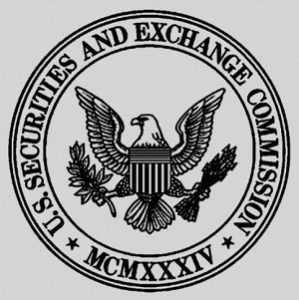 The Securities and Exchange Commission (SEC) is warning investors about common scam techniques. They have put together a video series which can be found here. The series noted that investors should be weary of fake testimonials, offers which purport to expire, requests to send money abroad, and using credit cards, or even multiple credit cards, to open an account.
The Securities and Exchange Commission (SEC) is warning investors about common scam techniques. They have put together a video series which can be found here. The series noted that investors should be weary of fake testimonials, offers which purport to expire, requests to send money abroad, and using credit cards, or even multiple credit cards, to open an account.
The SEC further noted, “One of the most common gimmicks con artists use is to promise investors that they will make a lot of money in a short period of time – that they will ‘get rich quick.’ Con artists may trick investors into believing that they will make tons of money with little or no effort (for example, for purchasing products or for performing trivial tasks, such as clicking on digital ads each day).”
These warnings are based on several recent cases prosecuted by the SEC.
In SEC Vs. Peterson, a case which the SEC charged in September 2019, the SEC alleges that defendants used call centers in Germany to fraudulently sell binary options.
Here is part of a press release from the SEC.
“According to the SEC’s complaint, the defendants conned U.S. and foreign investors out of tens of millions of dollars through three online binary options brokers, Bloombex Options, Morton Finance and Starling Capital, by the allure and promise of quick profits. The SEC alleges that defendants utilized call centers in Germany and Israel which operated as ‘boiler rooms,’ in which salespersons used high pressure sales tactics to offer and sell speculative binary options to vulnerable investors. Employees at these call centers allegedly persuaded investors to open binary option trading accounts and deposit large sums into those accounts.
According to the SEC complaint, the scam involved high pressure tactics by opening accounts using credit cards, much like the SEC warned.
“The call centers then encouraged investors to make large deposits, oftentimes from credit cards and retirement and savings accounts. They also falsely told investors that they only made money when investors made money,” the SEC complaint stated.
Binary options are exotic and very risky investments which involve all or nothing bets.
In the US, binary options can only be traded legally on exchanges, both NADEX and Cantor are licensed binary options exchanges.
In this scam, the options were traded over the counter, meaning that Peterson’s company only made money if the investors lost, “Unbeknownst to investors, Defendants only earned money if investors made large deposits and then lost their trades. Defendants thus had but one goal in mind for investors who opened accounts at their broker firms: to convince those investors to continue depositing more and more cash into their accounts and cause them to lose their money by trading binary options.”
Another case which features these sorts of scam techniques is SEC Vs. Anton Senderov and Lior Babazara, another binary options scheme.
In this scheme, the scammers made common get rich quick promises, according to the SEC complaint, “For example, the LBinary and Ivory Option websites and the call center employees claimed that investors could make large profits trading binary options while working with LianTech’s supposedly experienced investment professionals. In fact, the LianTech call center employees were trained to lie about their backgrounds and investment experience.”
The SEC released a video made in this scam.
According to a testimonial made on its website, a purported investor claimed, “I activated that software on Sunday January 10th, 2016, and here is what my account was worth on January 17th.”
The screen then flashes to purport to show that his account was worth $17,869.54.
“How is this even legal?” The purported investor claims during his testimonial.
Ironically, according to the SEC, none of it is, though not for the reasons in the promotional videos.
Investors should visit investor.gov for further information for spotting scams.









